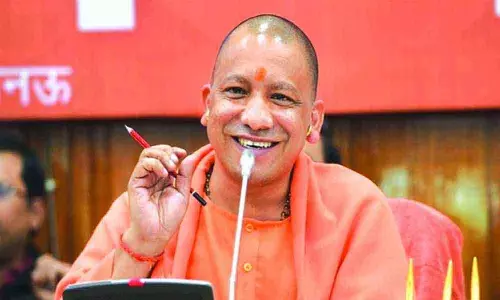
SC to examine Hindu, Muslim laws on kids' welfare in custody battles between spouses
text_fieldsNew Delhi: The Supreme Court Friday agreed to examine the constitutional validity of certain legal provisions of various Hindu and Muslim personal laws which favour granting custody of children to one of the separated spouses only, overlooking their welfare and fundamental right to have "care and love of both the parents".
A bench headed by Chief Justice of Ranjan Gogoi took note of the PIL filed by London-based NRI activist Sulochana Rani and issued the notice to the Central government represented by Solicitor General Tushar Mehta.
"This matter certainly requires examination," Mehta told the bench which also comprised Justices S A Bobde and S A Nazeer.
The plea, filed through lawyer Kaleeswaram Raj, raised "significant questions relating to the laws on custody and guardianship of children in India" and sought directions of the apex court to develop the concept of "shared parenting" keeping in mind the welfare of children of estranged and warring couple.
"The legal provisions which currently exist as per various personal laws are in the nature of entrusting the custody of children exclusively to one of the parents in case of separation.
"The statutes create a strong presumption in favour of exclusive custody. This presumption severely affects the fundamental rights of the spouse who has been denied the custody rights and the fundamental rights of the child who will be deprived of care and love of both parents," the plea said.
It referred to sections 6(a) and 7 of the Hindu Minorities and Guardianship Act, 1956 and said that they be held "unconstitutional" as they give primacy to men over women with regard to custody of children and they are violative of Article 14 (right to equality) in the Constitution.
The plea then referred to customary practice among Muslims and the Muslim Personal Law (Shariat) Application Act, 1937 and said as per them, father is considered as the guardian of the child and the mother is entitled to get automatic custody only for a short period of five years after the birth of the kids.
"Hence, it is the father who is entitled to get custody of the child. Both situations, that is, giving custody to the mother during the early years of the child and thereafter giving custody to the father in a mechanical manner, are antithetical to the very concept of welfare of the child.
"Gender based fixation of right to custody and guardianship is discriminatory and it has to be held as unconstitutional as it violates Article 14 (right to equality) and Article 21 (right to life and liberty) of the Constitution.
These statutory schemes require "reformation" as they are violative of various fundamental rights including the right to equality and the right to life of the child and deprived spouses, it said.
The plea sought a direction for the child-centric approach based on the idea of shared parenting to ensure effective implementation of the rights of the child in various areas such as "custody, guardianship and adoption".
"The denial of custody to one spouse as against the other violates the fundamental right of parenting to the said spouse, which is part of right to life guaranteed under Article 21 of the Constitution. Currently, custody is given to one of the spouses only and the other spouse is given visitorial rights.
"There is no rational basis in going for such an option violating the fundamental rights of the other spouse and the child. This is done without taking into account the best interest of the child, which the concept of shared parentage will satisfactorily fulfil," it said.
In view of these problems in the area of child welfare, the provisions are liable to be struck down as unconstitutional, it said.























